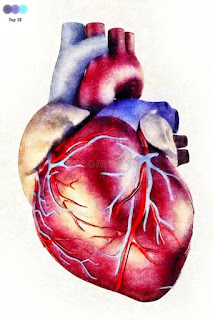𝟏𝟎 𝐅𝐚𝐬𝐜𝐢𝐧𝐚𝐭𝐢𝐧𝐠 𝐅𝐚𝐜𝐭𝐬 𝐀𝐛𝐨𝐮𝐭 𝐭𝐡𝐞 𝐇𝐮𝐦𝐚𝐧 𝐁𝐨𝐝𝐲
The human body is a marvel of complexity and efficiency. From the intricate workings of our internal organs to the amazing capabilities of our senses, the human body is a constant source of wonder and fascination. In this article, we will explore 10 fascinating facts about the human body that will leave you in awe of its incredible design and functionality.
Here are 10 Fascinating Facts about the Human Body:
1.The Brain's Processing Power:
The human brain is a powerhouse of processing capabilities. It is estimated that the brain can process information at a speed of about 1,200 words per minute, which is equivalent to the rate at which a fast-talking auctioneer speaks. Moreover, the brain has an astonishing storage capacity. It is believed to have the potential to store around 2.5 petabytes of data, which is roughly equivalent to three million hours of television shows.
2.The Power of Muscles:
The human body consists of over 600 muscles that perform a wide range of functions. The strongest muscle in the human body is the masseter, located in the jaw. It can exert a force of up to 200 pounds on the molars, allowing us to chew our food effectively. On the other hand, the smallest muscle in the body is the stapedius muscle in the ear, which is just about 1.5 centimeters long.
3.The Complexity of the Eye:
The human eye is a remarkable organ that captures and processes visual information with incredible precision. It can distinguish between approximately 10 million different colors, and the human eye's resolution is estimated to be around 576 megapixels. Our eyes are also continuously moving, making up to three saccadic eye movements per second.
4.The Power of Bones:
Bones are not just rigid structures that provide support to the body; they are also impressively strong. A typical adult human bone is four times stronger than concrete. The femur, or the thigh bone, is the longest and strongest bone in the human body. It can withstand incredible amounts of pressure and force during physical activities.
5.The Complexity of the Digestive System:
The human digestive system is a complex network responsible for breaking down food and absorbing nutrients. The small intestine, despite its name, is quite long, measuring around 20 feet in length. This length allows for efficient nutrient absorption. Additionally, the human stomach secretes hydrochloric acid, which is powerful enough to dissolve metal, yet it remains harmless to the stomach lining.
6.The Importance of Blood Vessels:
The human circulatory system consists of an intricate network of blood vessels that transport oxygen and nutrients throughout the body. If all the blood vessels in an average adult were laid out end to end, they would stretch for about 100,000 miles, which is four times the circumference of the Earth.
7.Unique Fingerprint Patterns:
One of the most remarkable features of the human body is the uniqueness of fingerprints. Even identical twins have different fingerprint patterns. This individuality makes fingerprints a valuable tool for forensic investigations and identification purposes.
8.The Speed of Nerve Impulses:
Nerve impulses in the human body travel at an astonishing speed. They can travel at up to 268 miles per hour, allowing for quick reactions to stimuli and sensations.
9.The Complexity of DNA:
The human body's blueprint lies within its DNA. If the DNA from all the cells in an adult human body were unraveled and placed end to end, it could stretch from the Earth to the Sun and back more than 600 times.
10.The Magnificent Heart:
The human heart is a tireless organ that beats around 100,000 times a day, pumping about 2,000 gallons of blood throughout the body. Over the average lifespan, the heart will pump enough blood to fill three Olympic-sized swimming pools.
The human body is a masterpiece of nature's design, filled with incredible facts and features that continue to amaze scientists and researchers. From the complexity of the brain to the uniqueness of fingerprints, each aspect of the human body serves a purpose that contributes to our survival and well-being. Understanding these facts about the human body not only deepens our appreciation for its wonders but also underscores the need to take care of this miraculous gift we all possess.










